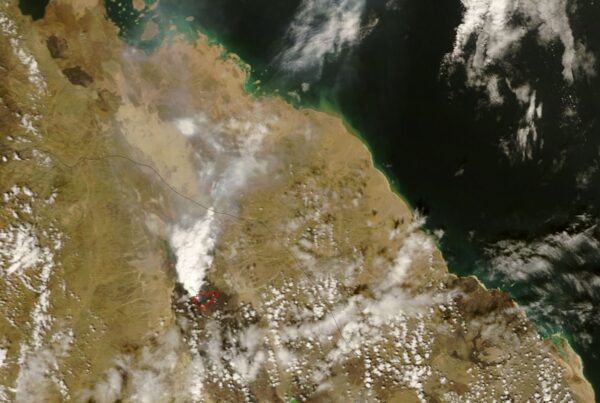Terms & Conditions for the following competitions:
12 Days of Giveaways
Day Twelve: 6 pack of Greenway wines
Starts 21 Nov 2025 Ends 18 Dec 2025 Winner to be announced 19 Dec 2025
Day Eleven: Night at voco, Gosford
Starts 19 Nov 2025 Ends 16 Dec 2025 Winner to be announced 17 Dec 2025
Day Ten: $500 Night at Pan Pacific, Melbourne
Starts 18 Nov 2025 Ends 15 Dec 2025 Winner to be announced 16 Dec 2025
Day Nine: $500 Voucher towards a Wendy Wu tour
Starts 17 Nov 2025 Ends 14 Dec 2025 Winner to be announced 15 Dec 2025
Day Eight:
Starts 14 Nov 2025 Ends 11 Dec 2025 Winner to be announced 12 Dec 2025
Day Seven: Two entrants will win a Stoney Creek Fedora Flexibraid® Hats in colour Natural by ooGee Australia
Starts 12 Nov 2025 Ends 9 Dec 2025 Winner to be announced 10 Dec 2025
Day Six: One entrant will win two nights accommodation in a Lead In room with breakfast for two people.
Starts 11 Nov 2025 Ends 8 Dec 2025 Winner to be announced 9 Dec 2025
Day Five: One entrant will win a $350 car rental voucher with East Coast Rentals
Starts 10 Nov 2025 Ends 7 Dec 2025 Winner to be announced 8 Dec 2025
Day Four: One lucky entrant will win a two-night stay for two at Wilderluxe Lake Keepit
Starts 7 Nov 2025 Ends 4 Dec 2025 Winner to be announced 5 Dec 2025
Day Three: 5 Entrants will each win a Lonely Planet Guidebook. One each of the following to giveaway New Zealand, Best Day Hikes New Zealand, Best in Travel 2026, Experience South Pacific, Experience Japan.
Starts: 5 Nov 2025 Ends: 2 Dec 2025. Winner to be announced 3 Dec 2025.
Day Three: 5 Entrants will each win a Lonely Planet Guidebook. One each of the following to giveaway New Zealand, Best Day Hikes New Zealand, Best in Travel 2026, Experience South Pacific, Experience Japan.
Starts: 5 Nov 2025 Ends: 2 Dec 2025. Winner to be announced 3 Dec 2025.
Day Two: Win Sydney Harbour Bridgeclimb double pass.
Starts: 4 Nov 2025 Ends: 1 Dec 2025. Winner to be announced 2 Dec 2025.
Day One: Two Entrants will each win a Veneto Fedora Flexibraid® Hat by Tina M Copenhagen
Starts: 3 Nov 2025 Ends: 30 Nov 2025. Winner to be announced 1 Dec 2025.
6-pack pf Greenway wines
Prize must be redeemed in full by 31st January 2026.
Prize consists of a pre-selected by vineyard 6 pack of Greenway wines.
Voco Stay
EXPIRES 31 DECEMBER 2026 Standard King Room. *Subject to availability. Excludes public holidays and blackout periods. This voucher is not redeemable for cash and must not be duplicated or reproduced in any form. Lost or stolen vouchers will not be replaced. Parking valid for 1 car only. Valid until the expiry date stated.
PARKROYAL Melbourne Airport terms and conditions:
- Valid for one-time use only.
- Voucher is not exchangeable for cash and is valid for one presentation only.
- Any unused credit balance will not be replaced, refunded or carried forward. Amount consumed in excess of the stated value is to be borne by the voucher holder and must be settled in full at the time of voucher usage.
- Voucher cannot be replaced or accepted if damaged, defaced, expired, lost, stolen and/or voided.
- Accommodation security deposit of $100 is required on check in (voucher value cannot be used to cover security deposit). The unused security deposit is refunded on departure.
- A merchant service fee of 1.25% for American Express, Visa, MasterCard, Union Pay and 3% for JCB will be applied to all credit card payments.
- PARKROYAL Melbourne Airport reserve the rights to change or amend the terms of use without prior notice.
- Prior reservation is required and is subject to availability, this excludes blackout periods and public holidays
- Bookings are to be made from Monday to Friday (9am-5pm), at least 24 hours prior to your visit.
- Voucher code should be quoted upon reservation and presented on arrival (e-voucher or printed copy).
- Voucher can only be used for direct reservations made with the respective hotel, not via third parties platforms.
- Please email group.prmla@parkroyalhotels.com or call us at +61 3 8347 2000 to make a booking.
Pan Pacific Melbourne
- Voucher is valid for the period stated only. Extension and refund are strictly not allowed.
- Voucher is not exchangeable for cash and is valid for one presentation only.
- Any unused credit balance will not be replaced, refunded or carried forward. Amount consumed in excess of the stated value is to be borne by the voucher holder and must be settled in full at the time of voucher usage.
- Voucher cannot be replaced or accepted if damaged, defaced, expired, lost, stolen and/or voided.
- Accommodation security deposit of $100 is required on check in (voucher value cannot be used to cover security deposit). The unused security deposit is refunded on departure.
- Pan Pacific Melbourne reserve the rights to change or amend the terms of use without prior notice.
- A merchant service fee of 1.25% for American Express, Visa, MasterCard, Union Pay and 3% for JCB will be applied to all credit card payments.
- Prior reservation is required and is subject to availability, this excludes blackout periods and public holidays
- Bookings are to be made from Monday to Friday (9am-5pm), at least 24 hours prior to your visit.
- Voucher code should be quoted upon reservation and presented on arrival (e-voucher or printed copy).
- Voucher can only be used for direct reservations made with the respective hotel, not via third parties platforms.
- Please email bookings.ppmel@panpacific.com or call +61 3 9027 2000 to make a booking
Wendy Wu Voucher
- This is redeemable towards a group tour (cannot be used as a deposit)
- Non-redeemable for cash
Quincy Hotel Ts & Cs
- Minimum of 7 days advance booking is required.
- eGifts vouchers can only be used for reservations booked via email egifts@tfehotels.com
- All reservations are subject to availability and certain black out days may apply. Redemption of eGifts vouchers will be done upon check-out.
- eGifts vouchers should be quoted upon reservation and voucher code presented upon arrival.
- Credit card details are still required upon booking to confirm the reservation. No charges will be processed upon booking.
- eGifts vouchers are valid at participating hotels and outlets in Australia only.
- eGifts vouchers are valid for the period stated only.
- Extensions and refunds are strictly not allowed.
- All reservations are subject to availability and certain black out days may apply.
East Coast Rentals Ts & Cs.
• Not transferable
• Booking must be made within 12 months
• Credit is single use only, any un-used credit will be forfeited
• Does not apply as payment for tolls, fuel or infringements.
Two-night stay for two at Wilderluxe Lake KeepitTerms and conditions
- Two nights only applies
- Valid for stays until 31 October 2026
- No date changes or cancellations are permitted within 31 days of arrival
- Subject to availability. Blackout dates apply, including but not limited to 24 December 2025 – 03 January 2026; 16 – 26 January 2026; 02 – 06 April 2026, 05 – 07 June 2025
Sydney Harbour Bridgeclimb Voucher Conditions
Valid for a BridgeClimb Summit or Summit Insider Day experience and is valid until 2 December 2026 excluding peak (25 Dec 2025 – 03 Jan 2026). Not valid for Dawn, Twilight, or Special Event Climbs.
7 Night Bali Stay:
Competition starts Fri 26 September 00:01 AEST
Competition ends Thu 6 November 23:59 AEST
Winner will be drawn and announced in Traveltalk on Fri 7 November.
Prize: 7 nights in a Deluxe Pool Terrace Room with breakfast for 2 persons.
Amadea Resorts & Villas Voucher Conditions
Valid to September 30, 2026 (blackout dates: 22 Dec 2025 – 7 Jan 2026 inclusive)
Advance reservation is required.
All competition prizes are subject to the following Traveltalk conditions:
Information on how to enter the competition forms part of the terms of entry. Entry into the competition is deemed acceptance of these terms and conditions.
- One entry per person only is permitted per competition.
- By entering this competition, entrants agree to be bound by these Terms & Conditions (and by any other requirements set out in the promotional material), which may be amended or varied at any time by the Promoter.
- Pointer Publishing Pty Ltd is the Promoter of this competition
- Entrants must only enter in their own name and the correct answer to be eligible. The Promoter reserves the right to request the winner to provide proof of identity and age, proof of residency at the nominated prize delivery address and/or proof of entry validity (if required) in order to claim a prize. Proof of identification, residency and entry considered suitable for verification is at the discretion of the Promoter. In the event that a winner cannot provide suitable proof, the winner will forfeit the prize in whole and no substitute will be offered.
- The competition commences the competition start date (above) and closes on the competition end date (above).
- Entries must be received by 11:59pm AEST on competition end date (above).
- Entry into the Promotion constitutes acknowledgement and acceptance of these terms and conditions. Information on how to enter, all entry instructions, advertising material and prize information published by the Promoter form part of these terms and conditions.
- An Entrant is any person who has entered this Promotion in accordance with these terms and conditions.
- Employees or directors of the Promoter or Sponsor, immediate family members of any employee or director of the Promoter or Sponsor, any retailer, supplier, associated company or agency of the Promoter or Sponsor and any person who the Promoter or the Sponsor has previously notified are not eligible to enter.
- Entries not completed in accordance with these terms and conditions are void.
- Entries will be deemed void if stolen, forged, mutilated or tampered with in any way.
- The judges’ decision is final and no correspondence will be entered into.
- If, due to circumstances beyond Traveltalk’s control, the supplier is unable to provide the stated prize, Traveltalk will not be held responsible.
- To submit a complete and valid online entry, entrants will be required to provide various personal details including full name, email address, residential address, contact phone number/s, age/date of birth and gender for the purpose of verifying eligibility. Any contact details entered incorrectly shall invalidate the entry.
- Illegible, incomprehensible and incomplete entries will be deemed invalid.
- The Promoter reserves the right to verify the validity of entries and to disqualify any entry which, in the opinion of Promoter, includes objectionable content, profanity, potentially insulting, inflammatory or defamatory statements, disqualify any entrant who tampers with the entry process, who submits an entry that is not in accordance with these Terms & Conditions or who has, in the opinion of Promoter, engaged in conduct in entering the Promotion which is fraudulent, misleading, deceptive or generally damaging to the goodwill or reputation of the Promotion and/or Promoter. This includes, but not limited, to entrants and households using multiple email addresses, postal addresses or PO Box addresses. The Promoter reserves the right to disqualify a winner if Promoter becomes aware that the winner and/or the winner’s entry is of a type described in this clause.
- The winner will be decided on the competition draw date (above) at 24 Chandos Street, Manly Vale, NSW 2093, and announced within Traveltalk newsletter.
- The Promoter will make all reasonable effort to contact the winner. If the prize is unclaimed within 10 days from the competition draw date (above), an unclaimed prize draw will be held at 24 Chandos Street, Manly Vale, NSW 2093. The original winner will forfeit the prize and the winner of the unclaimed prize draw will be notified by phone or in writing within seven (7) days of the draw.
- The winner’s name will be announced publicly through Traveltalk and on Facebook networks and in any publicity from prize suppliers.
- Whilst every care will be taken to make sure the winner receives the prize, the Promoter does not take any responsibility for parcels that are lost or stolen.
- All entries and any copyright subsisting in the entries become and remain the property of the Promoter who may publish any of the entries received.
- Privacy statement: We will only use and store your personal information for the purposes disclosed to you, including sharing it with any other organisations that help us provide goods or services to you including prize suppliers.
- Winner must be aged eighteen (18) years and over.
- Entrants are permitted to enter only once per competition.
- Entrants must reside in Australia
- All entrants will be subscribed to Traveltalk’s newsletter and to be eligible to win must be a subscriber on the day of the prize draw.
- All entries become the property of Traveltalk Media.









